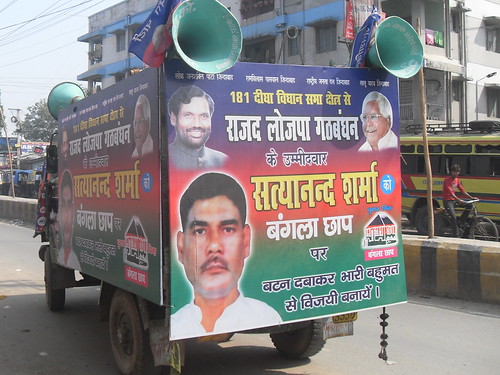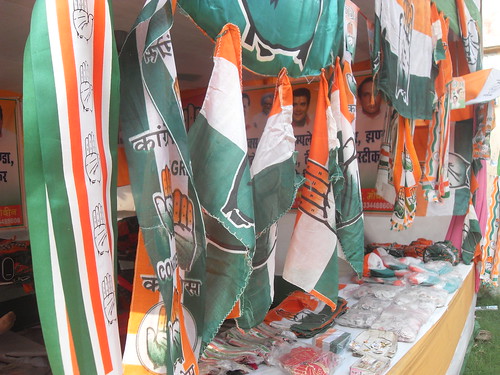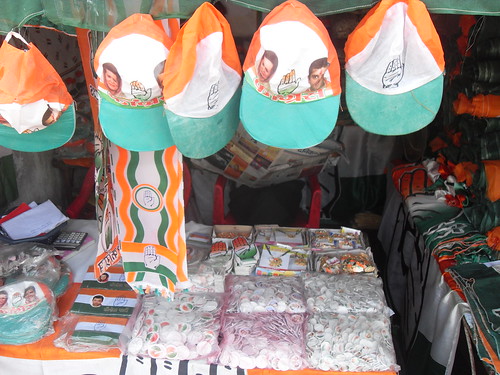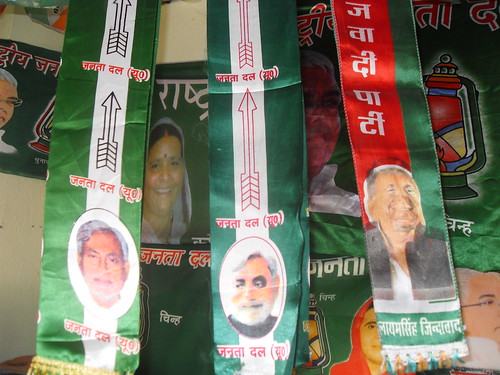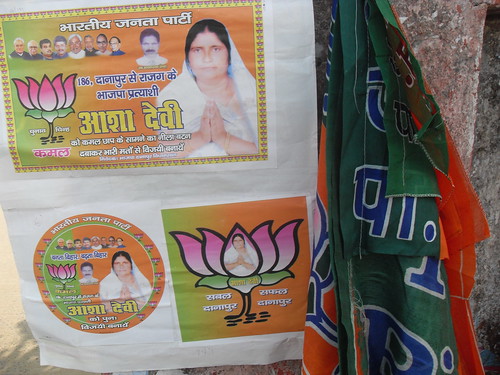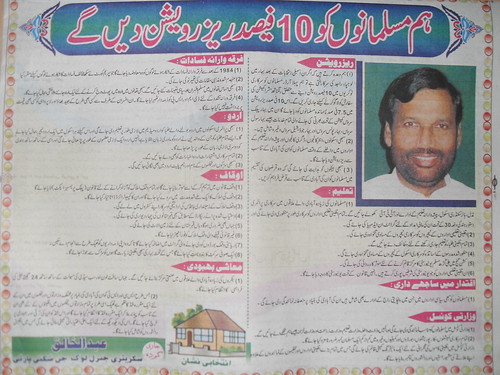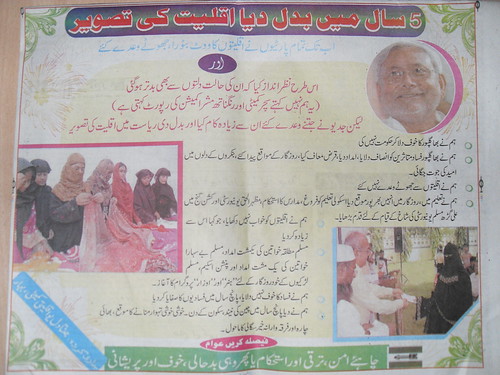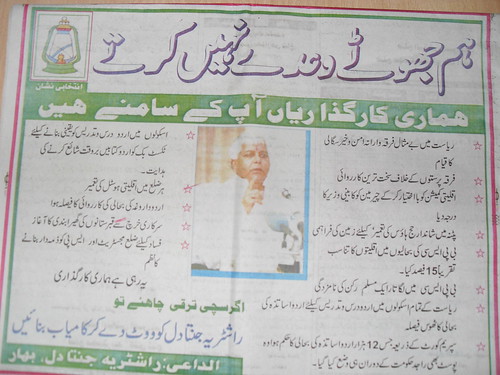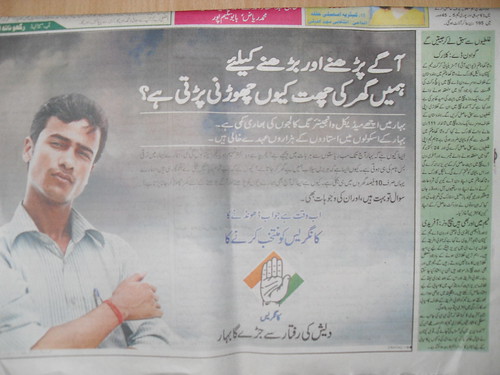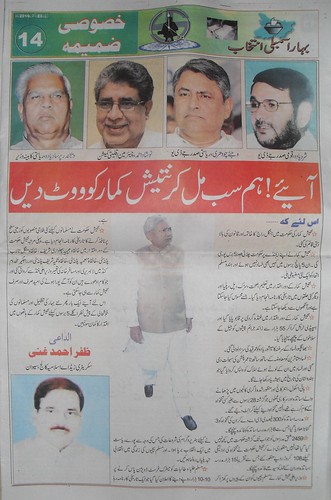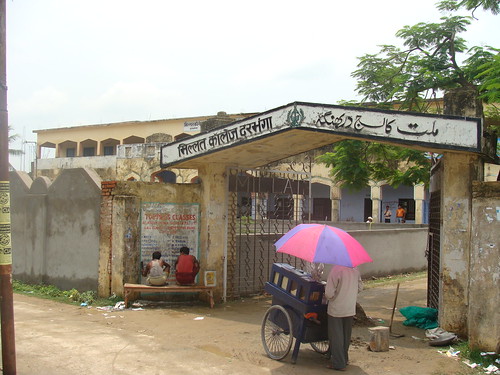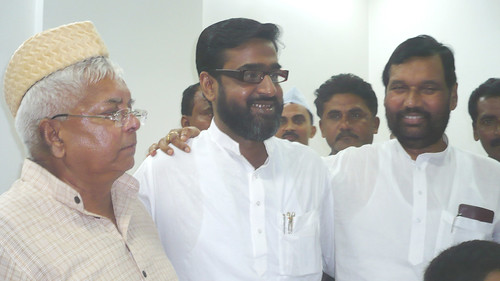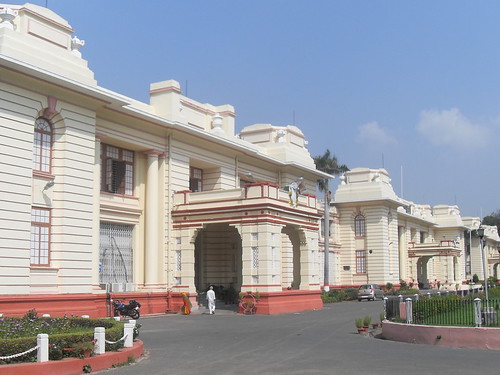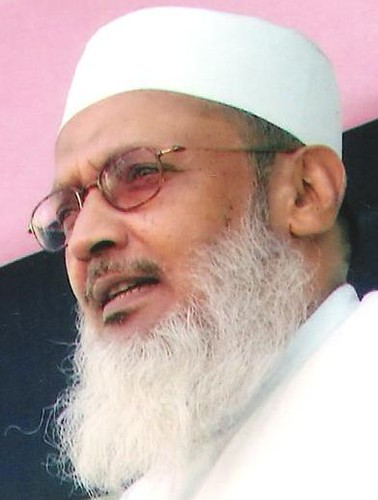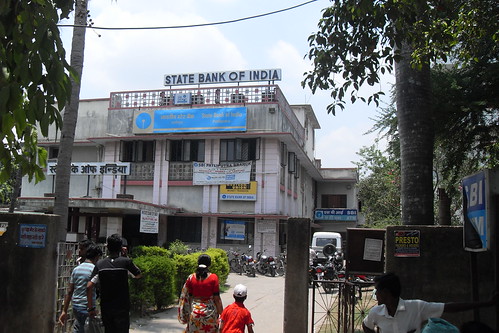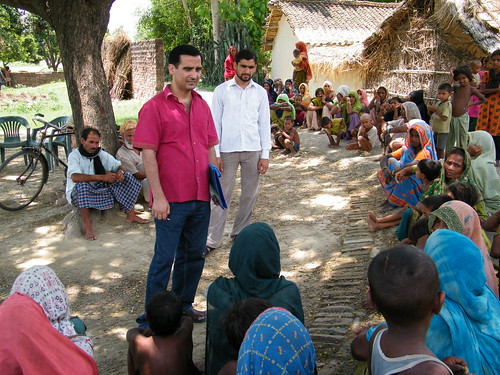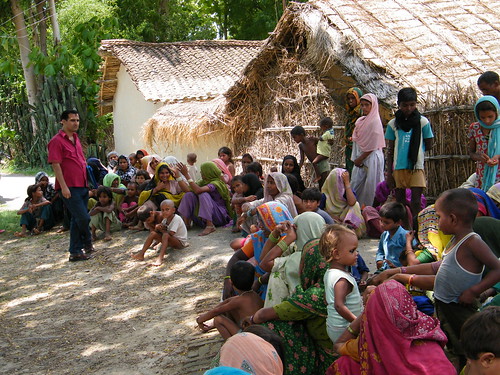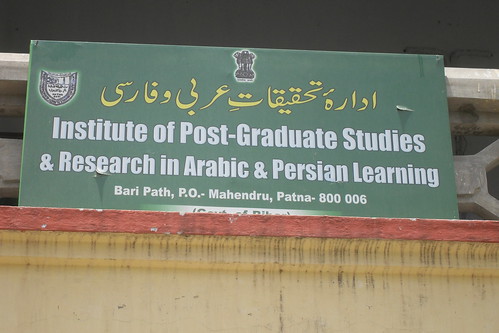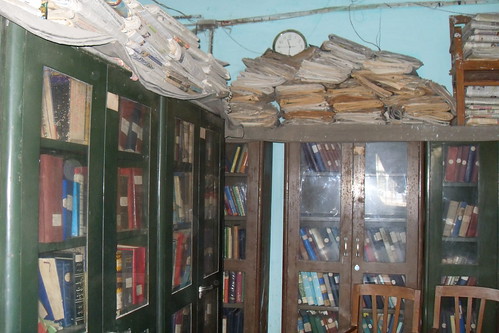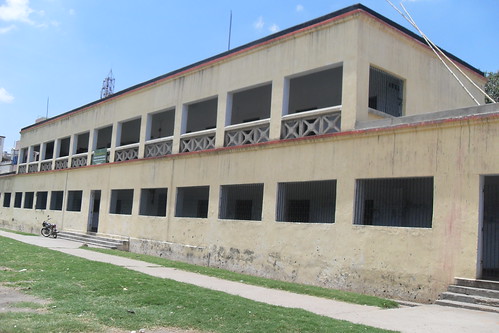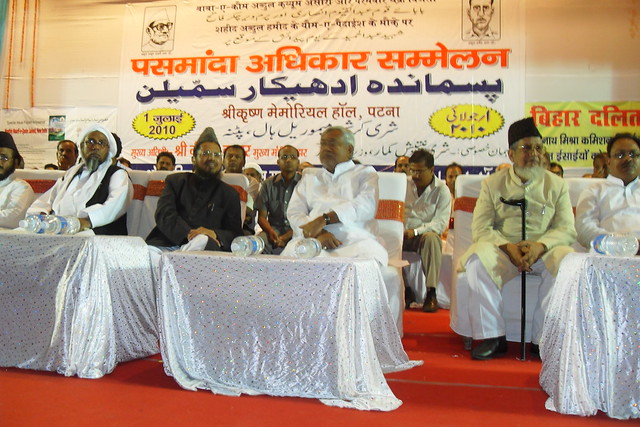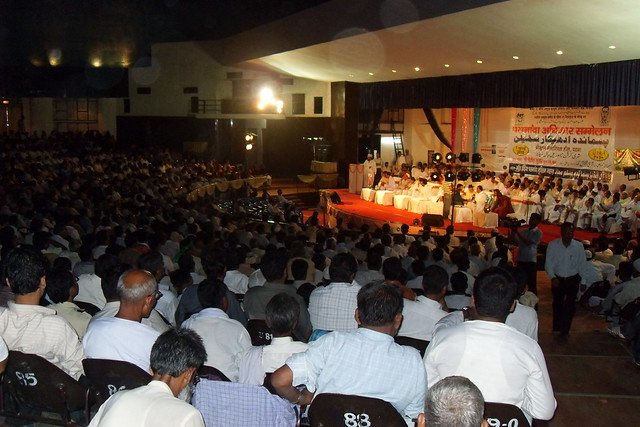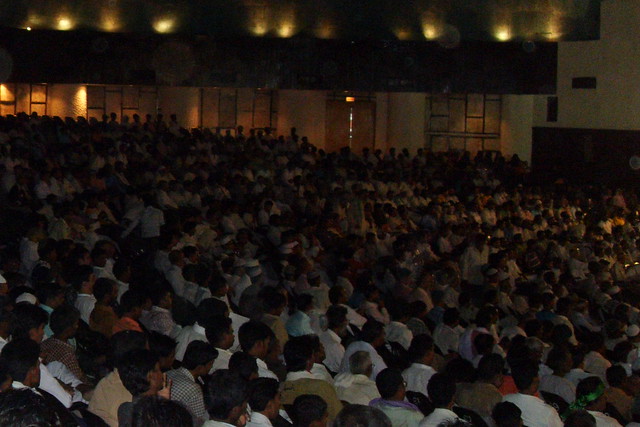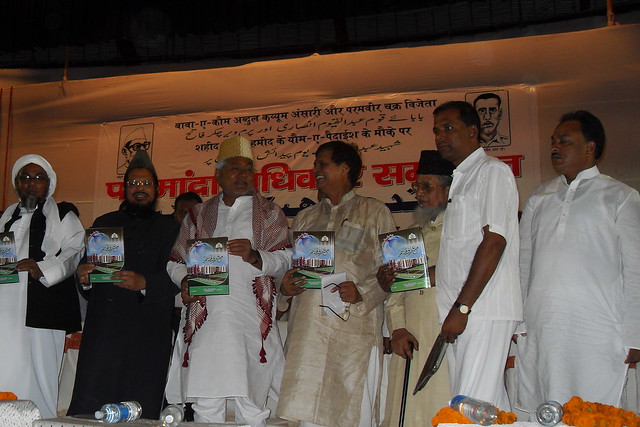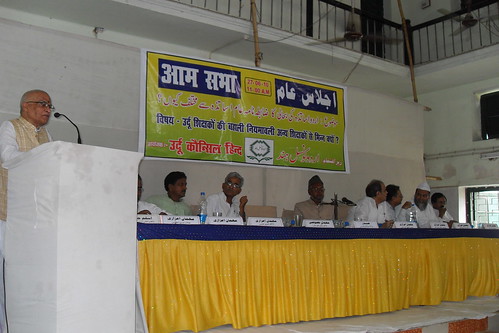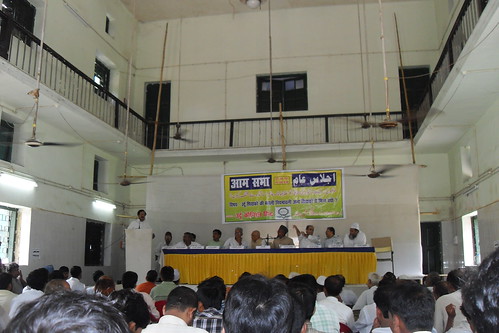By Manzar Bilal, TwoCircles.net, After sixty-year-long judicial process, the hearing on Babri Masjid title suite came to conclusion on July 26, 2010 at the three-member Special Bench of Allahabad High Court comprising Justices S U Khan, Sudhir Agarwal and D V Sharma but the verdict was reserved which may be delivered on any day before 1st October because Justice D V Sharma is going to retire on that day.
Talking to Twocircles.net on the issue, Zafaryab Jilani, the lawyer in the main title suit for Sunni Waqf Board, expressed full confidence for winning the legal battle in the case. “It will be immature to predict anything about the verdict because it is court’s job. Yes, we have full trust on judiciary and on the basis of evidences and proceedings of the case, we are fully confident for the victory.”

He reasoned for his confidence about victory saying: “We have produced strong and existing evidences in the shape of documents and witnesses that are, in my opinion, enough to satisfy the court on the issue. Moreover, out of 34 witnesses who recorded their statement before the bench in the favor of Babri Masjid, 11 are Hindus including Prof Suraj Bhan, Prof D Mandal, Dr Sita Ram Rai, Prof SC Shrivastava, Prof RC Thakural, Dr Jaya Menon and Dr Ashok Dutta.”
Meanwhile, the bench offered to both the parties to come with an amicable settlement of the dispute if it is possible but it failed as both the parties insist over ownership of the same spot.
In his reaction on this development Mr. Jilani, who is also convener of Babri Masjid Action Committee (BMAC), ruled out possibility of any such thing in the current scenario.
“Nowhere the possibility of amicable settlement left in the case because they are not ready to give up the plan of constructing a temple at the place where Babri Masjid stood till 6th Dec. 1992 and we will also not compromise on less than the very spot. So, only option remains is the judgment of the court” he said.
On delay for judgment in the case he said: “It was political pressure which pushed the case for decades-long trial. Otherwise, it would have been finished long ago. Politicians feared that if verdict would go against Hindus, they might lose the votes. But now they cannot prolong the case further and though much late finally the truth will come out. ”
Asked if Muslims will be handed over the land in case verdict comes in their favour, he said: “It will be the tough matter but it, really, will test the power of secularism in the world’s largest secular country because it will prove as to how much religious rights and places of minority are protected here. Therefore, it will be foremost responsibility of government to implement the court order to protect the democracy in the country.”
Four suits on the ownership of the landNotably, there are four title suits on which the hearing was completed and Special Bench will announce its verdict. Of them, first suit was filed in 1950 by Gopal Singh Visharad, second suit was filed in 1959 by Nirmohi Akhara, third suit was filed in the year 1961 by UP Sunni Central Wakf Board and forth suit was filed on July 1, 1989 by a group of Hindus.
These all four suits were initially being heard in Faizabad civil court for about 39 years until Special Bench was constituted in July 1989 by the Allahabad High Court acting on the plea of then Uttar Pradesh Government for the speedy trial of the case by the High Court itself. But unfortunately, the Bench has been reconstituted several times and it took 20 years for it to complete the hearing on the case. The final hearing in the case began on July 23, 1996 and concluded on July 26 2010.
The case was in favour of Muslims till 1950In order to know the origin of the dispute over the ownership of the land where 16th century Babri Masjid located, we need to go back to British ruled India when on January 19, 1885 Mahant Raghubar Das filed a suit in the court of sub-judge of Faizabad seeking permission of puja rights over a ‘chabootra' (platform) in front of the mosque which he claimed as birthplace of Ram.
This was the first suit on the subject which was rejected by then sub judge of Faizabad Pandit Hari Kishan. In his order dated February 24, 1885 the judge said: "It [chabootra']was so close to the existing Masjid that it would be contrary to public policy to grant a decree authorizing plaintiff to build a temple as desired by him." It is notable here that judge Pandit Hari Kishan was an upper caste Brahmin and not a British or a Muslim.
Then Raghubar Das moved to Faizabad district judge Colonel J.E.A. Chambier who dismissed the appeal on March 17, 1886 for the same reason. Mr. Das did not accept defeat and took the matter to the Oudh Judicial Commissioner W Young who also declined Das’s plea in his judgment of November 1, 1886.
It was only the night of December 22, 1949, when the matter flared up with an idol was put in the middle of the mosque following which hundreds of Hindus barged into it and started puja. Though the mob was pushed back and a padlock was put on the gates of the mosque building, the idol remained inside despite stern instruction from the then prime minister Jawaharlal Nehru to the then UP chief minister Govind Ballabh Pant.
Turning the issue against Muslims On January 16, 1950, Gopal Singh Visharad filed the suit before the Civil Judge of Faizabad seeking injunction to offer puja inside the mosque. The then Civil Judge N.N. Chadha granted interim injunction though only for local Hindus. This order worsened the matter. Then five Muslims from Ayodhya, led by Mohammad Hashim filed a petition before Allahabad High Court against the injunction order. Since then several Muslims and Hindus have filed petitions and the matter was dangling in the legal battle.
But shortly after Vishva Hindu Parishad (VHP) launched nationwide campaign to put the pressure for clearing the way for construction of Ram Mandir, Faizabad district judge KM Pandey on the plea of U.C. Pandey, ordered on February 1, 1986 for unlocking of the gates of Babri Masjid and allowing the pilgrims and devotees to worship the idol inside the mosque. The order led to communal tension between Hindus and Muslims across the country. The Sunni Waqf Board and BMAC moved to Allahabad High Court against the district judge's order.
In 1989, on the plea of then state government led by Mulayam Singh, all the cases related to the Babri Masjid were referred to the specially constituted Lucknow bench of Allahabad high Court.
Meanwhile, in 1990 when violent karsevaks tried to reach Babri Masjid campus for 'shilaniyas' of Ramjanambhoomi [laying of foundation stone], Mulayam Singh government was forced to give firing order to control the situation in which some karsevaks were killed. This gave an issue to BJP to polarize the votes in its favor. Subsequently, Kalyan Singh occupied the post of chief minister of the state in 1991. The first thing he did after coming to power was to order acquisition of 2.75 acres of land around the mosque.
In response to this illegal action of the state government, BMAC convener Zafaryab Jilani promptly filed a writ to prevent any kind of construction on the acquired land. Aslam Bhure, a resident of Ayodhya, also moved the Supreme Court against the acquisition order. The apex court transferred the case to Allahabad High Court.
Demolition of Babri masjidBefore court came to any conclusion in the case, as per the preplanned conspiracy by Sangh Parivar the Babri Masjid was demolished on 6th December 1992 in broad daylight which was the black day in the history of democratic India. The demolition led to nationwide communal riots which left several hundred people dead, bringing more shame to the nation.
This was done not only with the help of Kalyan Singh led state government but also then central government led by PV Narasimha Rao who turned blind eye to the incident. The incident brought defame to the nation from across the world. After that central government took as many as 67 acres land in and around Babri Masjid under its custody.
However, Supreme Court in 1994 dismissed all interim orders issued by various courts in Ayodhya and directed that the land would remain under the Centre's custody and status quo must be maintained until the Lucknow bench of the high court gave the judgment in the case being heard by it.
Does VHP fear defeat in the case?Who will win the case it remains to be seen but Sangh Privar is getting anxious. Therefore, while the whole country is waiting for the day on which the special bench will deliver its judgment, VHP announced a nationwide campaign from August 16 to December 17 to create atmosphere for the construction of the temple. The decision was taken at the meeting of VHP’s central management committee in Ayodhya on July 16.
After the meeting, Praveen Togadia, international secretary of VHP, has been quoted as saying that the campaign meant to hasten the movement for construction of Ram mandir regardless of the court verdict.
Is it an attempt to put pressure for favorable judgment? Zafaryab Jilani responded: “We respect court’s verdict and are waiting for that. If they have such plan let us wait and see if they will do that because it will prove that they are totally nervous and afraid of sure defeat in the case. It also means that court’s verdict does not have any place in their sights.”
